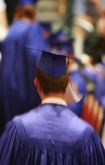Even if science and technology are commonly recognized as factors of growth and development, that need large investments in school and education policies, around one-third of the students enrolled in scientific degree programs does not complete the entire course of study (OCSE, 2010). The phenomenon of abandonment or opt-out for another course takes place especially during the first year of college.
Several theories tried to describe and interpret these circumstances, usually focusing on the structural aspects of the courses offered or on the choice process that is based, in young people, by the fact of being constantly oriented toward the research of an identity and a role to play in the future. Few studies shed light on the aspects that, according to the students, might prevent the drop-out or the relocation on other field of study. This is what has been proposed in the IRIS European project, through the collection of viewpoints expressed by students in a representative sample of 2667 Italian students.
Which factors allow students enrolled in scientific faculties not to opt-out or drop-out studies permanently? Thanks to the results collected by the IRIS survey, it has been possible to identify three main factors.
The first factor emerged is the relationship among schoolmates. Being part of an informal group, taking part to laboratories and activities with other students and studying together for an exam are all important elements, especially for young women. Social relations, according to the people interviewed, is the overriding dimension that makes them able to hold the burden of studies and to face the unavoidable difficulties of keeping the required pace.
The second element brought to attention is the learning level. Results reached are considered decisive especially for students at biology, physics and mathematics related courses. Developing a good learning level allows the adjustment of one’s own skills to the school program requirements and the promotion of a positive approach to the academic environment.
The third factor concerns the support provided by university structures and the relationship with faculty members. The availability of suitable facilities, an affordable schedule and efficient laboratories allow an active approach to science, through practices that are relevant since the secondary school. Many students, in this regard, confirm what has already emerged in the international ROSE research about the students’ inclination toward science and technology: the mere existence of a laboratory in the institute increases the chances that students enroll in scientific degree programs. As in high school, during the college years the relationship with professors plays a crucial role to get the students actively involved. They suggest the necessity of an interaction with professors involved in their educational process and moved by the desire and capacity to transmit their enthusiasm for science.
The permanence in a scientific degree program is a process concerning both cognitive and emotional aspect and, above all, the construction of the student’s future identity. It is not possible to imagine a simple strategy to motivate students to stay longer in their degree programs without taking into account the growth process typical of this life cycle. Even though, the reasons collected from their voices provide some revealing information. In order to encourage the participation to scientific courses, it is necessary to promote a relational and structural context that would allow students to verify their learning progresses, the level of interest and the desire to be part of the scientific community.
The results of the European survey IRIS will be collected in the book Participation, Retention and Gender Equity in Science, Technology, Engineering and Mathematics Higher Education, edited by Ellen K. Henriksen, Justin Dillon and Jim Ryder, published by Springer in 2013.
Giuseppe Pellegrini , among the editors of the 2012 Science and Society Facts and Figures, teaches Methodology of Social Research at the University of Padova, Italy. He is a member of Observa Scientific Committee and coordinates the section “Science and Citizens”.








